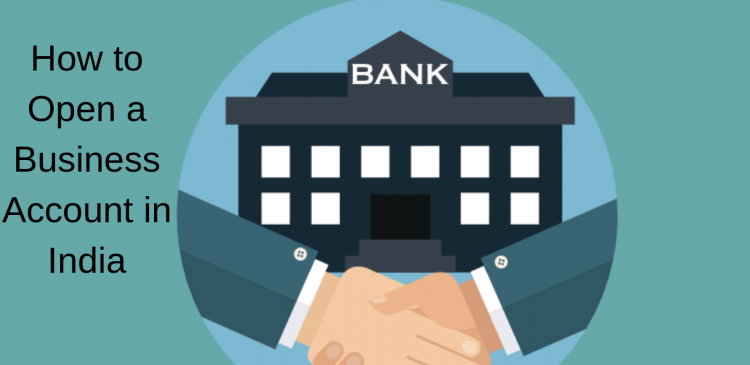How to open a business account in India?
Are you running a business? Is it a small or large enterprise? You do financial transactions, right? Don’t tell me you are not. Every business irrespective of the size need to indulge in financial transactions. This is where the demand for opening a business account comes into the picture.
This article opens your mind for opening the business account in India. In addition, the procedures you need to undergo, documents required and more.
In initiating any kind of businesses and continue the transactions bank is an essential in-thing. Usually, it legitimizes and makes your idea behind starting it a real one. It gives many benefits and features from your every-day financial activities until considering taxes. These set points determine never cross a line. There will be in control of spending. Want to earn the benchmark in that elite group of businesses then go and open the bank account.
Meanwhile, keeping the track of your income and expenses by distinguishing from personal and business finances. What are the expenses you are spending on yourself and from a business point of view? This all can be tracked by your banks.
Planning a business account requires a few steps that make you work towards your goals quickly.
Think about the accounts
Business accounts generally look for the banks
to take care of their taxes, income and payroll. It is difficult for startups as they have a limited number of employees. Don’t you agree? You agree right. Then have separate accounts for various separate finances. This makes sense as businesses counts on their bankers. But before heading your journey, consult your professional accounts and seek advice.
Moreover, when choosing the bank account understand between the terms-business account and savings account.
Choosing the right bank
Know your local bankers as the bank should be nearby to carry on your daily transactions easily.
Contact each bank and understand their services and specialities. Their document requirements and procedure.
Consequently, every bank has their own type of business accounts. Know in which bucket you fall into. Know their rules in terms of clearance fees, maintaining balance and outstation cheques etc.

Many banks say that you need to maintain a minimum balance. For startups these are lucrative. However, as a business expands, you can alter the kind of account.
Secure your business with a name
If you operate your business different from a personal name, then check if it is trademarked or not. Also, check online considerations for naming rules and protect your precious business by giving it an online presence. While picking up a name, let it sync with your brand and register that with the bank.
Sort out the paperwork, documents in order
Before proceeding to the bank for setting up an account, ensure you understand the bank’s requirements. Know what is the paperwork you need to fill. Since various accounts have various specifications. More often than not, they ask you for the pan card number, and an SSN, if you are running a sole trader business.
They are different types of businesses
- Sole Proprietorship
- Partnership Firms
- Public or Private limited company
- Foundation/Trust/Society
For these, they have different documents, but the most common documents are

For Address proof
- Telephone, electricity bills
- Account statements
- Ration card
Proof of identity
- Passport
- PAN card, Voter’s identity card
- Driving licence
- Registration certificates, if the firm is registered
Get ready to receive, accept payments
Now that, you have chosen your business name, desired bank, account type, and opened a bank account. Next what? make sales, and receive payments. There should be credit card suppliers and consumers accept and pay credit-card payments. In line with your bank account.
If there are massive transactions then online payments are also one of the most attractive choices. At present, as the digitalization is cropping in accepting Paypal payments for instantaneous transactions. Accept every payment which comes your way. Let it be UPI, PayTM, google pay, Debit or Credit cards, Net banking or through EMI. Link every type of payment to the bank.
Benefits of having a business account in India
To run the business smoothly, have a bank account. It offers various pros. Some of them are
-
- A business account aids in your financial accounting transactions. It helps to track every penny spent through a business account. It shows how sound your business is financial. On the whole, it assists in decision making
- Draw BRS at any time. It helps to match your cash flows. In addition, you can file IT returns without any hiccups. Not only tax returns you can go ahead with professional tax, VAT returns and more
- Opening a bank account enhances your company’s image in the marketplace and beefs up your business. A business account in your business name aids in achieving this. As your name will be engraved on the cheques which you issue

- This shows how serious are you in your transactions. It’s like a rhythm for music.
- Loans can be easily earned when you maintain a regular transaction. The positivity with opening a bank account is earning a working capital or term loan. This helps to maximize your endeavours
- Business accounts can be grouped under different umbrella categories which saving account doesn’t offer. These are LOC, internet banking Neft, RTGS, 24/7 customer care or phone banking
Conclusion
when you are running a business it is obvious that you will be dealing with many transactions. This includes late payments, overdrafts, cheques, letter of credit or guarantee and other stuff. Every day, you will encounter many accounting aspects and involve making payments and receiving them. This is why there is a massive need for the business to open an account. The above steps let you know what documents to carry how to choose a bank name and more for easy discretion.





